According to the most modest assessment, the march brought together about 2,500 participants (last year the number was around 1,000, and two years ago there were 300-400 participants), who walked more than a kilometre down the streets in the city centre.
The day before the march, the website of one of the LGBT organizations was hacked, and the hackers posted threats of physical violence on the site. The opponents of the march started to gather at its location as early as the evening before, and by morning they announced that they had blocked the city centre and would not allow the march to move past a “holy place,” by which they meant the monument to Ukraine’s national poet Taras Shevchenko. In these circumstances, security measures at the march were unprecedented; it was guarded by 4,000 to 6,000 police officers, including national guard squads, sappers, and mounted police, and people who wanted to participate had to pass through metal detectors.
Thanks to the mobilization of thousands of law enforcement officers and special measures to evacuate the participants from the city centre (the city government assigned special buses and even subway trains that travelled to the terminal station of the metro without stopping), large-scale violence, like that at pride two years ago, was avoided. But a few people still fell victim to far-right attacks outside the march’s location.
Here’s a photo report about Kyiv Pride by a Political Critique author.
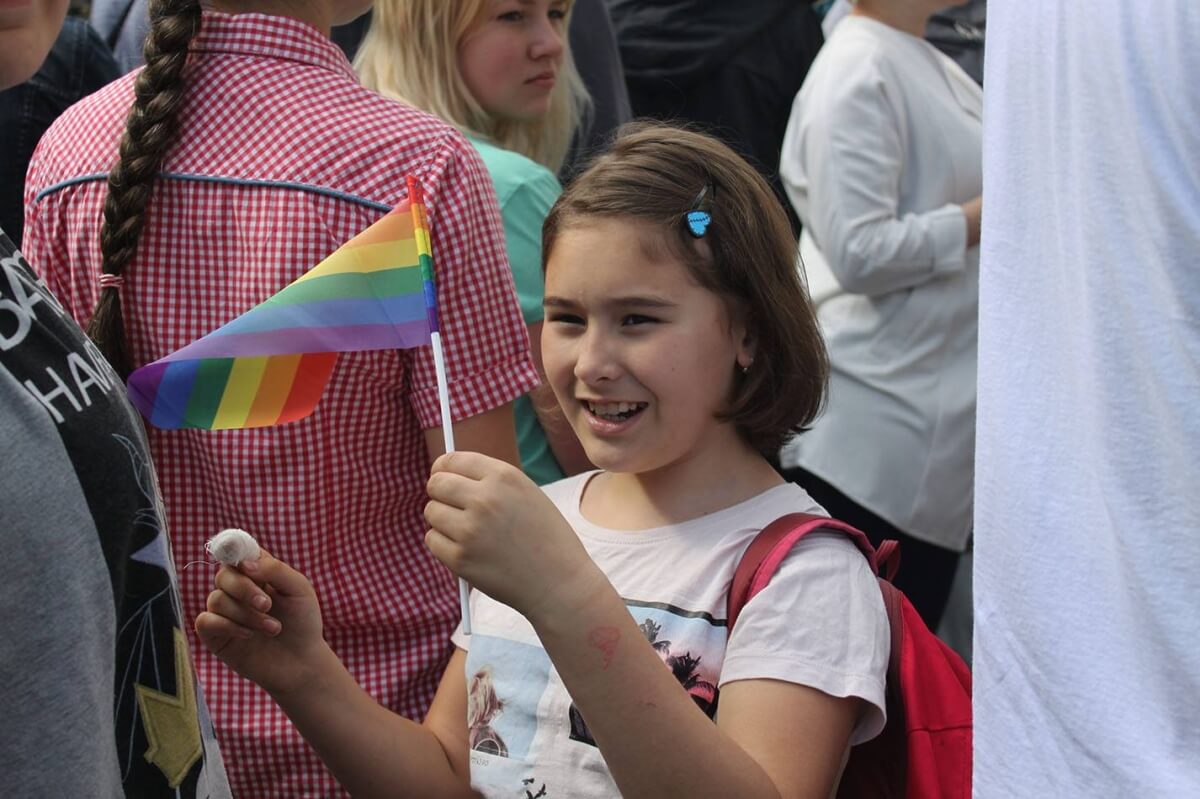
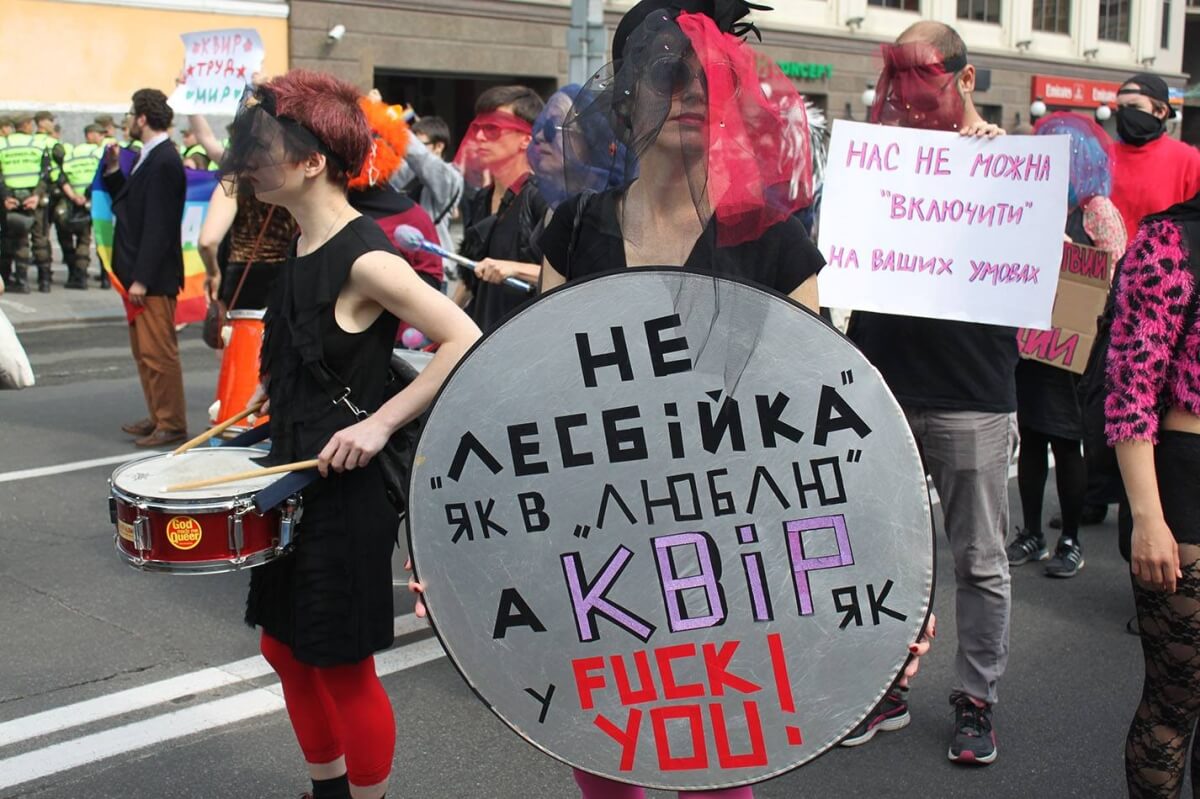
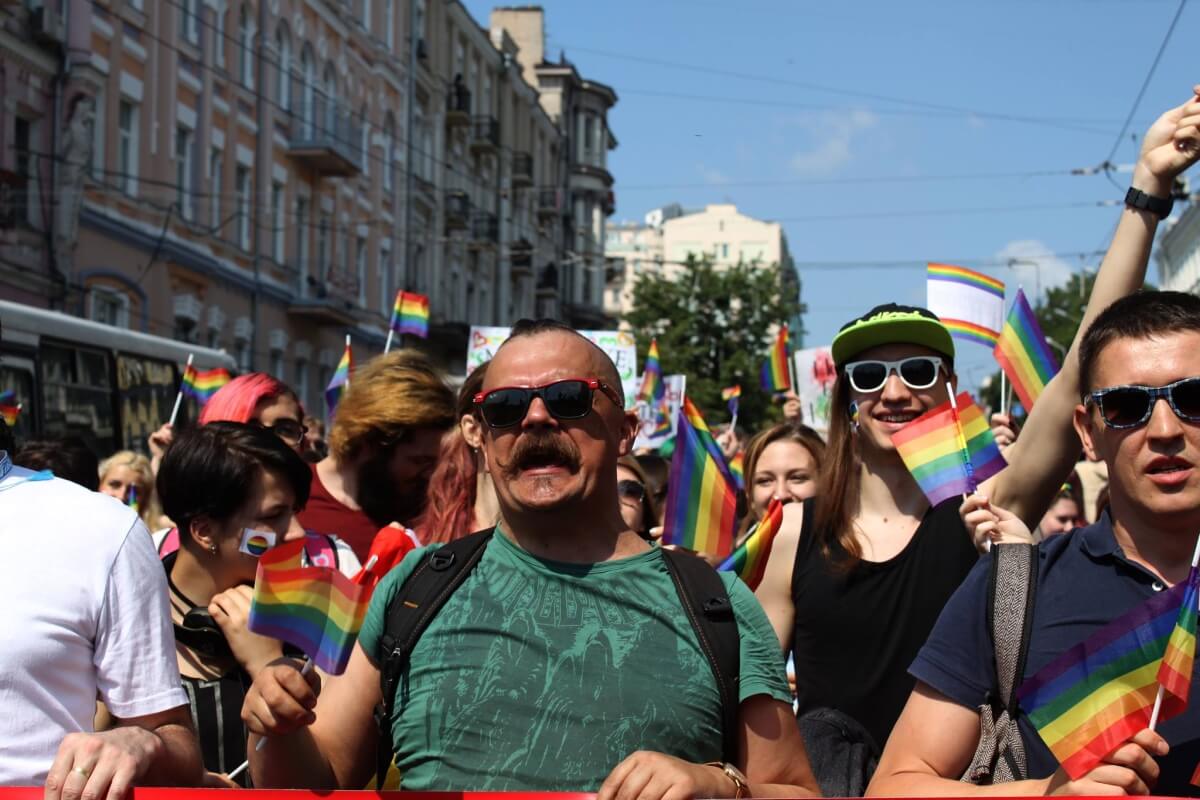
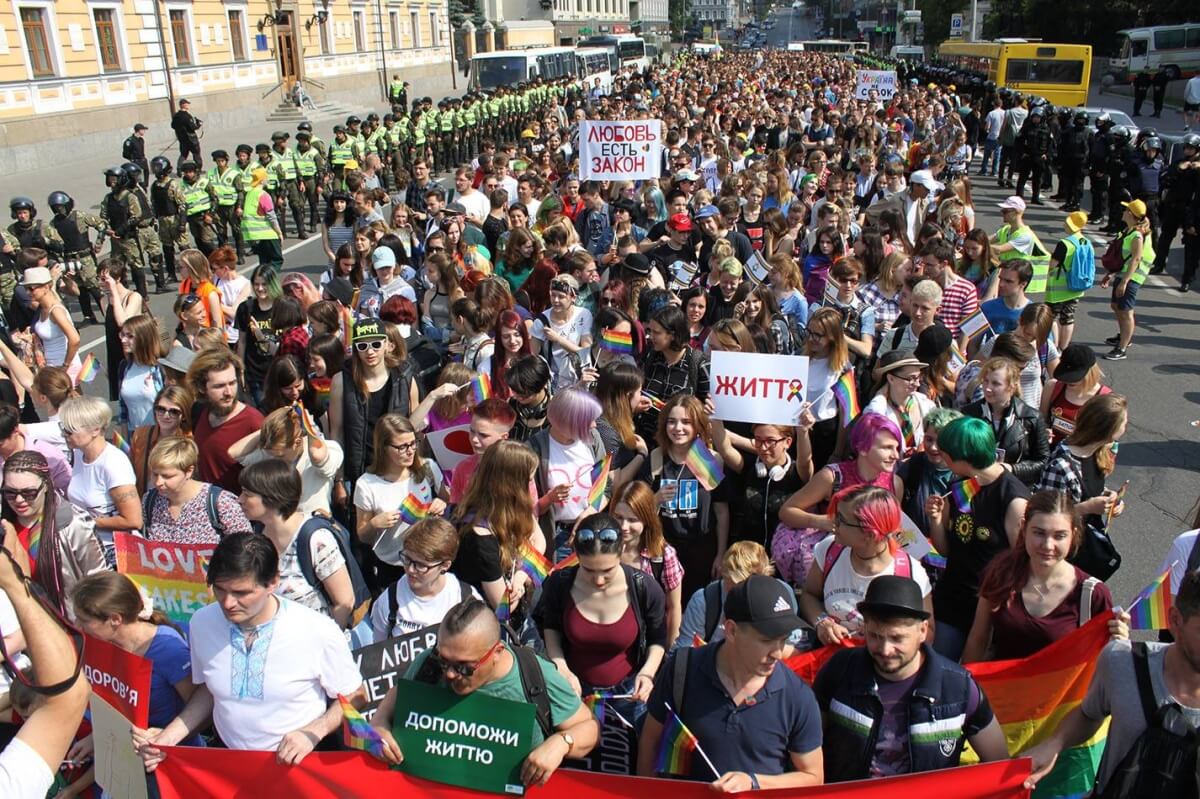
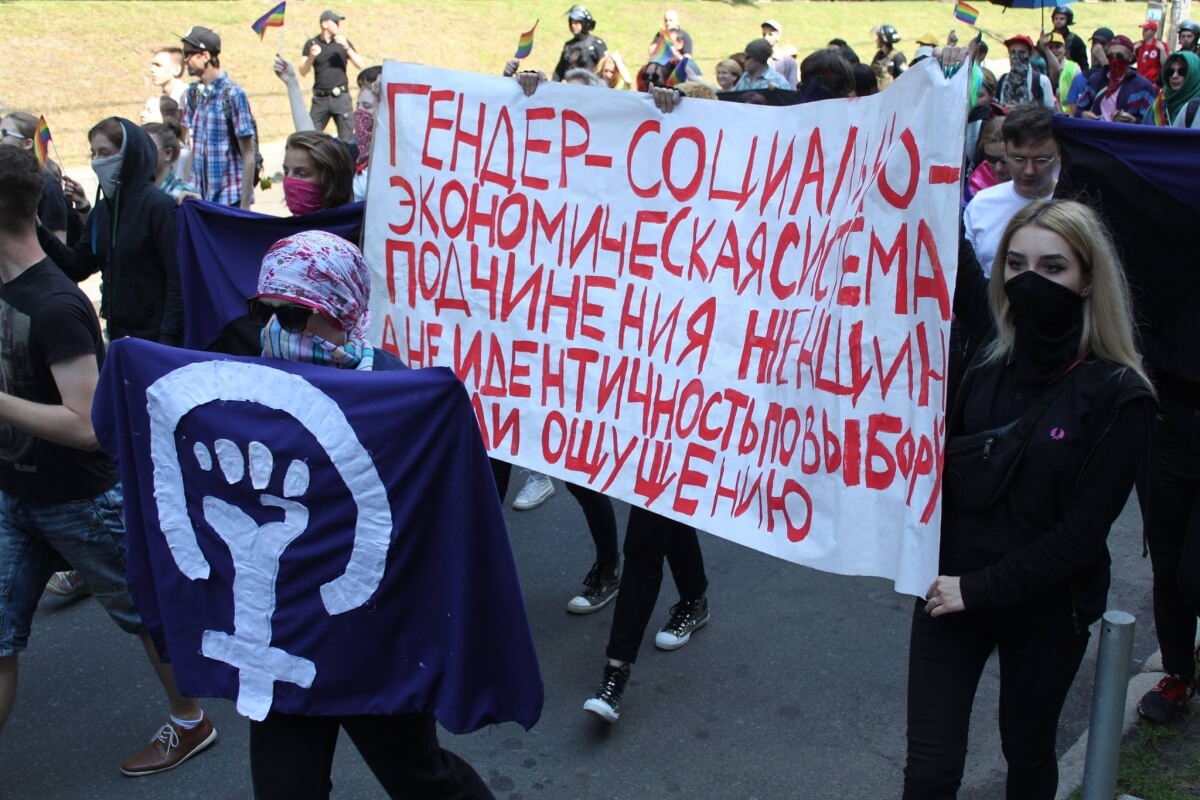
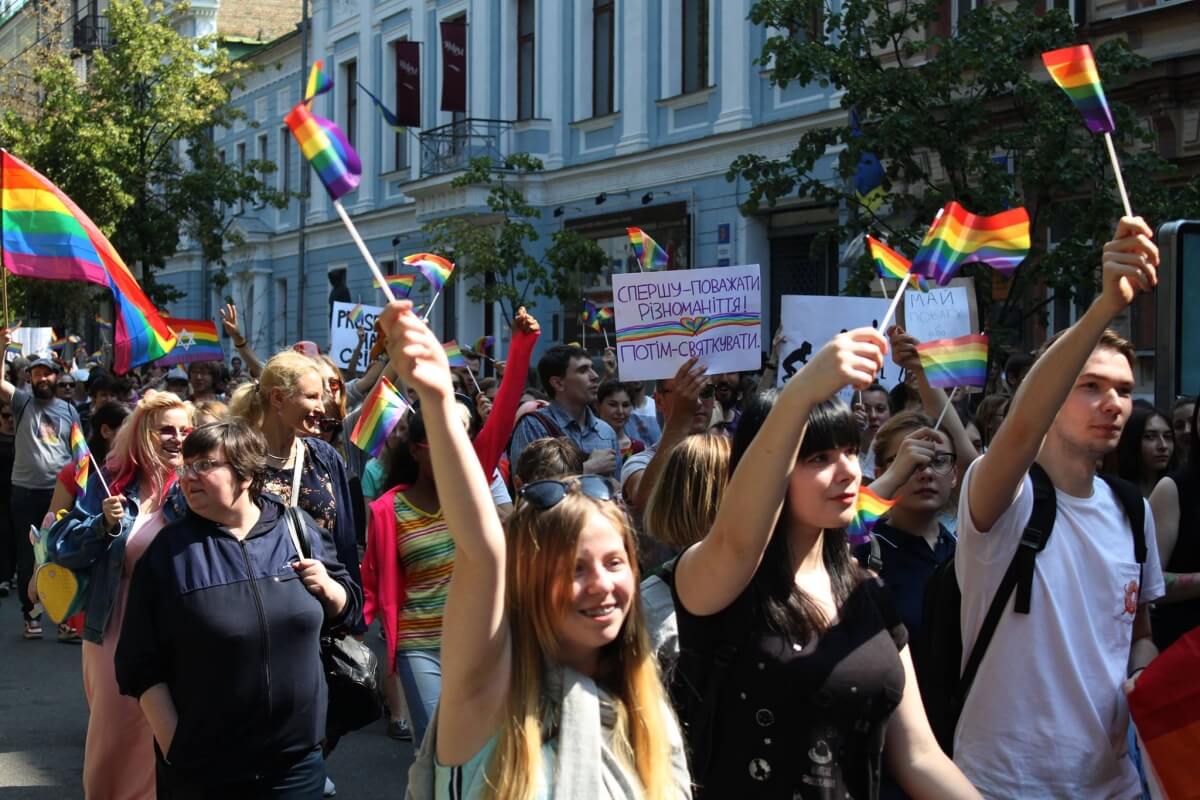
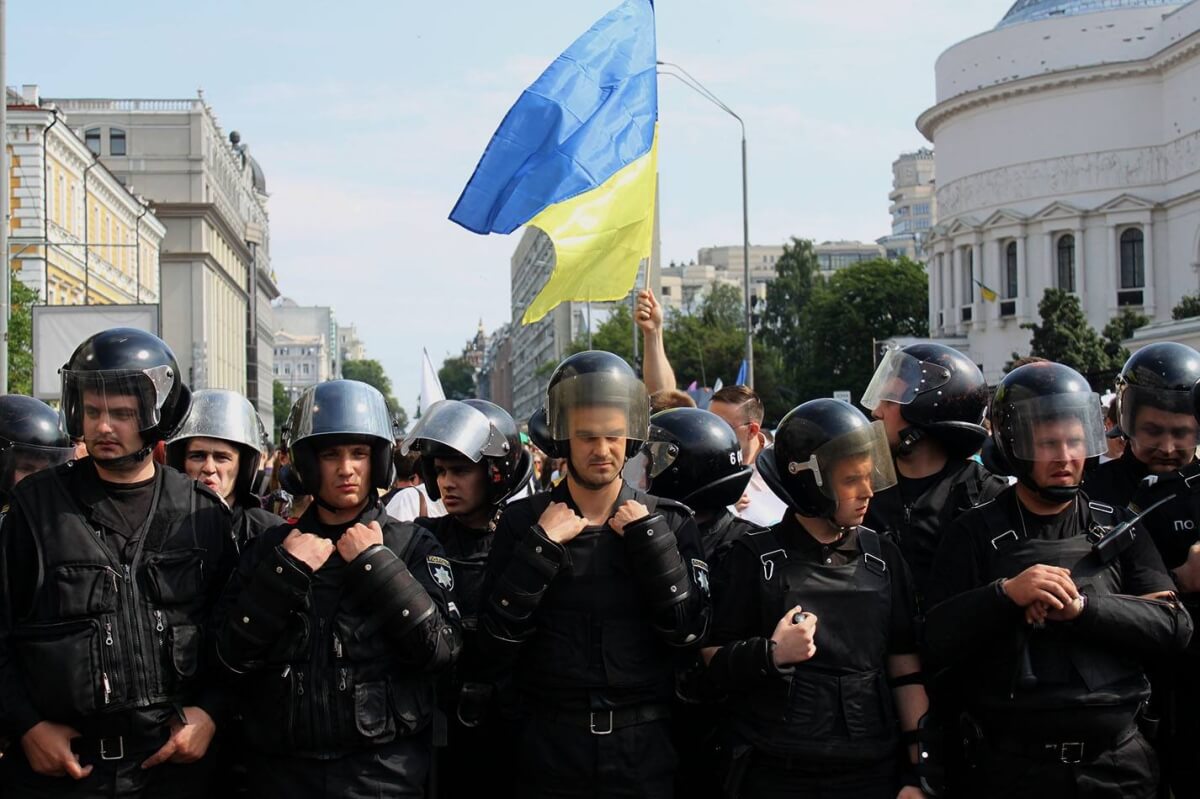
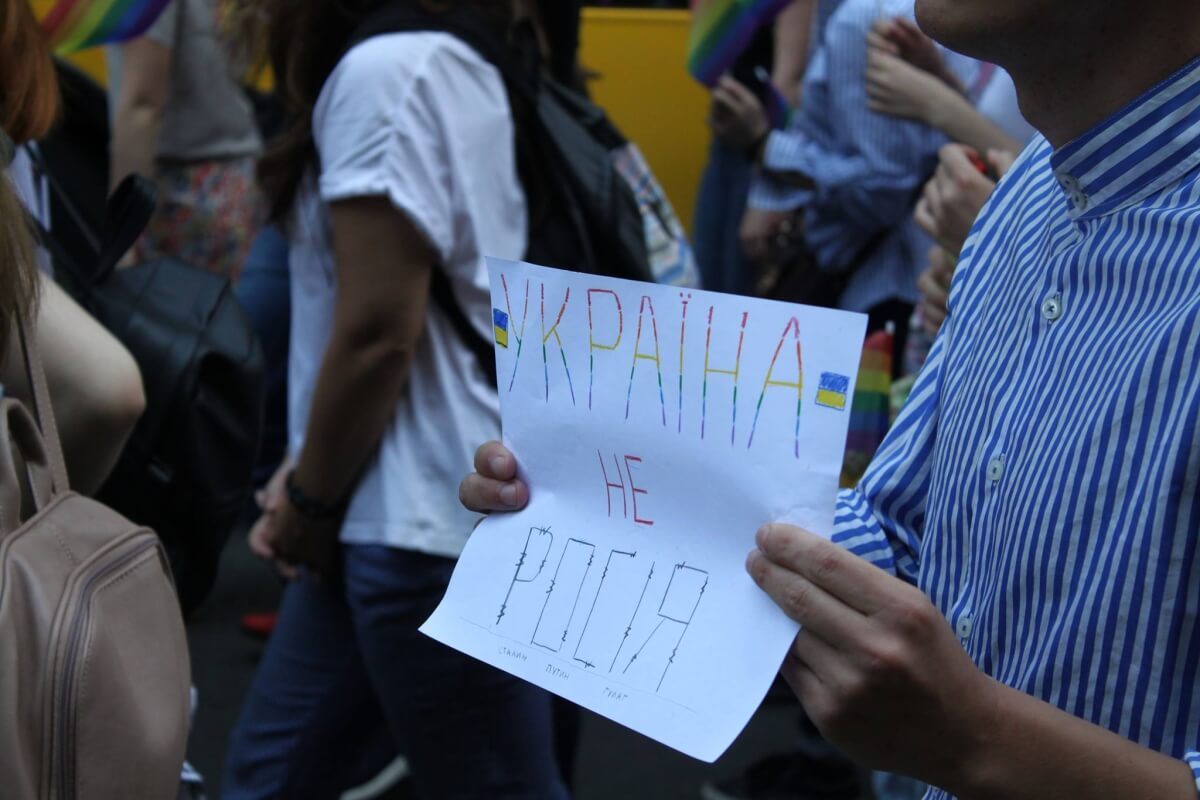
![Political Critique [DISCONTINUED]](https://politicalcritique.org/wp-content/uploads/2015/09/Political-Critique-LOGO.png)
![Political Critique [DISCONTINUED]](https://politicalcritique.org/wp-content/uploads/2015/09/Political-Critique-LOGO-2.png)